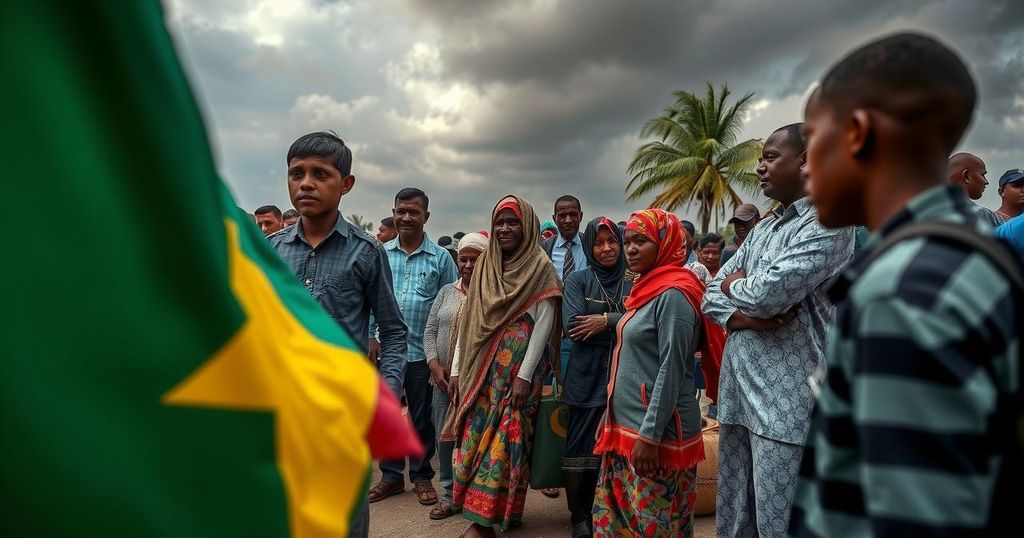Grave Threats to Sudanese Refugees in Ethiopia Amid Ongoing Violence
Sudanese refugees in Ethiopia’s Amhara region are at grave risk from violence and forced labor as armed conflicts escalate. Human Rights Watch reported that refugees, having fled Sudan, face ongoing abuses from militia groups amid deteriorating security conditions. The UNHCR has closed camps due to violence, and reports indicate continued threats and coercive returns to Sudan, highlighting a critical humanitarian crisis requiring urgent action.
Sudanese refugees in Ethiopia’s Amhara region face severe threats, including violence, abduction, and forced labor, stemming from ongoing conflicts between Ethiopian military forces and local Fano militias, according to a recent report by Human Rights Watch (HRW). The report, which covers incidents from April 2023 to September 2024, revealed that these refugees, who already escaped atrocities in Sudan, find themselves in perilous conditions in Ethiopia. Laetitia Bader, HRW’s Deputy Africa Director, emphasized, “Sudanese refugees in Ethiopia have been the target of abuses for more than a year by various armed actors. These refugees fled horrific abuses at home and urgently need protection, not further threats to their lives.” The Amhara region, particularly problematic due to longstanding tensions between the Amhara and Qemant communities, witnessed a significant escalation of violence starting in August 2023. Conflicts between government forces and local militias have left refugees vulnerable, with many reporting incidents of robbery, assault, abduction, and even murder. Sanctions on border movements further complicate the situation; Sudan’s El Gedaref border crossing was shut following clashes involving the Fano militia, further isolating these vulnerable populations. Reports from the field describe harrowing encounters where armed groups threatened refugees in their camps, demanding valuables under the threat of death. Tensions in the Awlala and Kumer camps have escalated, with protests erupting over insufficient food and medical supplies while demanding security from local militia attacks. The HRW report highlights that in April 2024, over 1,000 refugees protested the continued insecurity, trying to reach the UNHCR office in Gonder but faced opposition from Ethiopian police. Violence has led many refugees to return to Sudan despite the perilous conditions there. In July 2024, an armed attack on the Kumer camp claimed the lives of ten Ethiopian federal police officers, exacerbating the vulnerability of the refugee population. Additionally, refugees have been subjected to forced labor, with HRW noting at least 347 verified cases in the past two years. Militia members have abducted refugees to work on local farms, reinforcing an oppressive environment. Due to the urgent and rising threat of violence, the UNHCR closed both the Awlala and Kumer camps in mid-2024, relocating refugees to the Aftit camp. However, conditions there remain critical, with persistent food shortages and lack of essential services. Instances of violence between Ethiopian military and Fano militia further destabilize the precarious situation, with refugees often caught in the line of fire. Refugees reported coercive tactics by Ethiopian authorities when attempting to flee back to Sudan, indicating family separations and physical assaults, leaving many feeling trapped in a dire situation. HRW has called on the Ethiopian government to uphold its duty to protect refugees within its borders amid ongoing conflicts and violence. Ethiopia has received over 90,000 Sudanese refugees and asylum seekers since the conflict in Sudan began, highlighting the pressing humanitarian need for international support in this crisis.
The article discusses the situation of Sudanese refugees in Ethiopian camps, highlighting the alarming conditions as they endure violence and insecurity due to the conflict involving Ethiopian military forces and local militia groups. As refugees escape oppressive situations in Sudan, they face new threats in Ethiopia, necessitating urgent international attention and intervention. The report by Human Rights Watch serves as a vital documentation of these refugees’ plight, emphasizing the need for protective measures and improved humanitarian assistance.
In summary, the plight of Sudanese refugees in Ethiopia is dire, characterized by violence, forced labor, and inadequate security. The ongoing conflict between the Ethiopian military and local militias escalates their vulnerability, with immediate measures required to ensure their safety and well-being. Human Rights Watch’s report underscores the urgency for the Ethiopian government to take responsibility and effectively protect refugees, alongside a call for international humanitarian efforts to address these escalating crises.
Original Source: www.dabangasudan.org




Post Comment